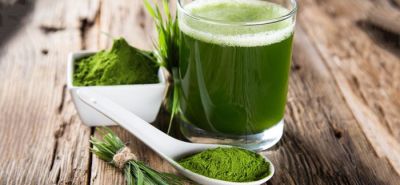Fenugreek: Improves Digestive Problems
Last Updated on June 3, 2023
Cultivated in North Africa, the Middle East, Egypt and India, Fenugreek has a long history as an ingredient in traditional medicine. It was used for a variety of health conditions, including digestive problems. It was also used for inducing childbirth.
Today, Fenugreek seed is commonly used in cooking, and is an indispensable ingredient in Indian curries, as well as treating many ailments:
Improves Digestive Problems, Cholesterol Levels, and Glucose Tolerance
Fenugreek is a digestive aid that reduces symptoms such as diarrhea, constipation, abdominal pain and inflammation of the stomach. It cleanse the blood stream and is often incorporated in an Ulcerative colitis & Crohn’s Disease diet treatment plan due to its anti-inflammatory & soothing effects.
Fenugreek also seems to benefit those with heart conditions, such as hardening of the arteries and high blood levels of certain fats, including cholesterol and triglycerides.
It also shows potential for helping those who are diabetic. In fact, a study out of India showed that administering 2.5 grams of fenugreek twice daily for three months to people dealing with non-insulin-dependent diabetes mellitus significantly lowered cholesterol naturally, along with triglycerides, without affecting HDL cholesterol.
Improves Exercise Performance
The Journal of Sports Science and Medicine reports a study of the effects of combined creatine and fenugreek extract supplementation on strength and body composition in men. Forty-seven resistance-trained men were divided into two groups according to body weight. Each group then took either 70 grams of a dextrose placebo, 5 grams of creatine and 70 grams of dextrose, or 3.5 grams of creatine and 900 milligrams of fenugreek extract and participated in a four-day a week periodized resistance-training program for eight weeks.
Body composition, muscular strength endurance and anaerobic capacity of participants was tested. The creatine/fenugreek group showed significant increases in lean mass, bench press and leg press strength. The study concluded that creatine combined with fenugreek extract supplementation had a significant impact on upper body strength and body composition as effectively as the combination of creatine with dextrose.
Why is this good? The use of fenugreek with creatine supplementation may be an effective means for enhancing creatine uptake while eliminating the need for excessive amounts of simple carbohydrates, so you may want to consider adding fenugreek to your list of best foods for athletes.
Increases Libido in Men
Some fenugreek uses for men include treating hernias, erectile dysfunction and other male problems, such as baldness. That’s because fenugreek may increase sexual arousal and testosterone levels.
In a study published in Phytotherapy Research, 60 men between the ages of 25 and 52 years with no history of erectile dysfunction were supplemented with either a placebo or 600 milligrams of fenugreek extract per day for six weeks. Through self-evaluation, the participants noted their results with fenugreek, reporting that the fenugreek dietary supplement had a positive effect on their libidos. Ultimately, the study found that fenugreek extract had a significant influence on sexual arousal, energy and stamina and helped participants maintain normal testosterone levels.
Lowers Inflammation from Outside the Body
In addition to lowering internal inflammation, fenugreek is sometimes warmed and used externally as a poultice. This reduces external inflammation and can treat:
- Pain and swelling in the muscles and lymph nodes
- Gout
- Wounds
- Leg ulcers
- Sciatica
- Dandruff
- Eczema
It’s important to test the area first to ensure that it does not burn or further inflame, however.
Promotes Milk Flow in Breastfeeding
Fenugreek also helps breastfeeding women who may experience low milk supply. Fenugreek can increase a woman’s breast milk supply because it acts as a galactagogue. Galactagogues are substances that help with increasing milk supply. This stimulates the milk ducts and can increase milk production in as little as 24 hours.
While more research is needed to determine the exact efficacy and safety of fenugreek on breastfeeding, several studies note its use in promoting milk flow. Complementary & Alternative Medicine, the Annals of Pharmocotherapy, Journal of Pharmacy and Pharmaceutical Sciences and Veterinary Medicine International, among others, have all published studies on this issue.
Adds Flavor and Spice to Food
In foods, fenugreek is often included as an ingredient in spice blends, mostly found in Indian fare, such as curried dishes. It’s also used as a flavoring agent in imitation maple syrup, foods, beverages and tobacco. The leaves from the plant can be used in salads, and both fresh and dried leaves are used in Indian cookery.
Helps with Eating Disorders
Beyond enhancing flavor, fenugreek has been shown to increase appetite, which results in restorative and nutritive properties. A study published in Pharmacology Biochemistry, and Behavior was designed to investigate the effects of a fenugreek seed extract on feeding behavior. Experiments were performed to determine food consumption and motivation to eat, as well as metabolic-endocrine changes.
The results showed that chronic oral administration of the fenugreek extract significantly increased food intake and the motivation to eat. The report also indicated, however, that the treatment does not prevent anorexia nor the decreased motivation to eat.
In cases of anorexia nervosa, the University of Maryland Medical Center recommends taking 250 to 500 milligrams of fenugreek up to three times a day, but it may not be safe for children — so as with any medication or natural treatments, check with your doctor first.
Recommended Supplement:







Leave a Reply